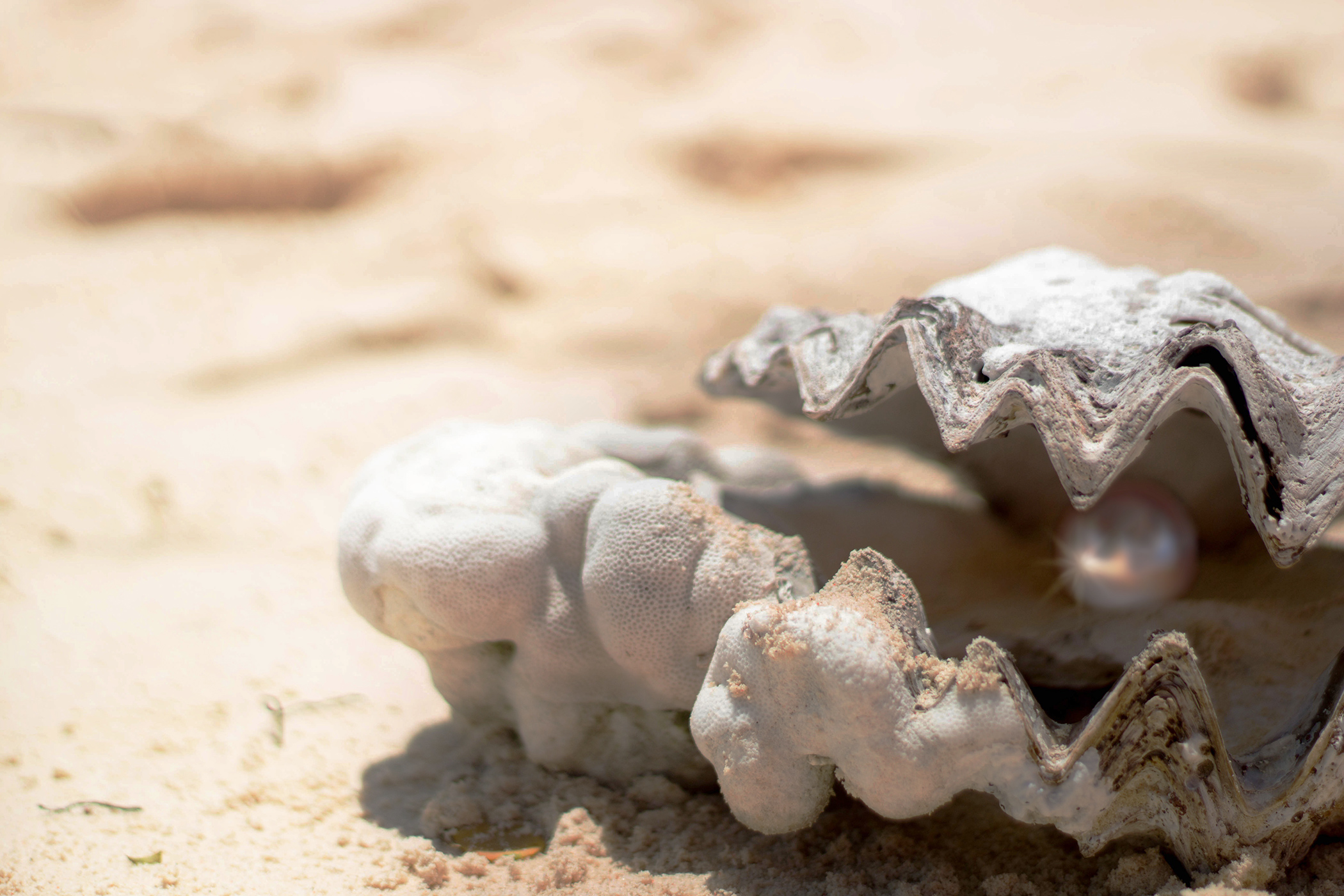Pearls and the People of God

Of all the gems, minerals, and precious metals of the world, nothing compares with the iridescent glow of Akoya pearls. With no cutting, chipping, or polishing needed to bring out their natural beauty, these perfectly shaped spheres are incredibly valuable. Thomas Edison once described cultured pearls as an apparent “biological impossibility.”
Pearls embody an important part of Japanese history and culture. Revered as the “Pearl King,” K?kichi Mikimoto (1858–1954) almost single-handedly created the cultured pearl industry, at one point producing 75% of the world’s pearls. His pearls supplied the high-end jewelry market with necklaces and earrings, bringing great fame. His flagship store and namesake Mikimoto is in Ginza, just a short jog from where I live. Soon after his discovery, others copied his techniques, and freshwater Biwa pearls farmed in Lake Biwa became nearly synonymous with freshwater pearls worldwide.
Pearls have an important place both in Japan and the Bible. Let’s consider this beautiful creation and the rich metaphors that have been created around it.
Beauty from brokenness
The birth of pearls is truly a miraculous event, as I learned from the museum and staff at Mikimoto Pearl Island in Toba, Mie Prefecture. Pearls form from brokenness. When something—a piece of sand, shell, bacteria, or parasite—damages cells in the mantle, the oyster responds by coating it with protective layers. In cultured pearls, this irritant is surgically inserted into the weakest, most fragile area of the oyster along with a small piece of mantle from another oyster that must be sacrificed in the process. Over two years, thousands of fine layers of nacre, made of organic and inorganic elements, create a shiny translucent ball lighter and stronger than concrete.
Damaged oysters create these objects of great beauty and worth. It’s fascinating, then, that pearls—formed from brokenness and suffering—symbolize the perfection of the kingdom of heaven, for no one can enter its celestial city without first walking through its “pearly gates” (Rev. 21:21).
Pearls and the heavenly city
What if God created oysters to perpetually re-enact the gospel story? What if all pearls point to Jesus, the true oyster sacrificed that we may be changed from objects of wrath into objects of mercy (Romans 9:22–24)? Jesus was cut so that we may be washed in his blood and coated with layer after layer of God’s grace. The suffering of the Lamb created a gateway for us to enter the kingdom of heaven, which cannot be entered without accepting the message of brokenness. Through the metaphor in pearls, we can see God’s people displayed and glorified in weakness while covered in the beauty of God living eternally in heaven.
There are other pointers to the gospel surrounding the heavenly city. Consider the foundations decorated with 12 gemstones. When dug from the ground, they are nothing but plain dull rocks. Only through careful cutting, grinding, and polishing in the hands of an artist can these precious stones sparkle with gloriously rich colors. God delights in his handiwork by crafting beautiful gems out of broken pieces.
Like the 12 gates and 12 gemstones, the people of God can be considered to be represented by the number 12 in the measurements of the walls of heaven. The angel “measured the city with the rod and found it to be 12,000 stadia in length, and as wide and high as it is long. The angle measured the wall using human measurement, and it was 144 cubits thick” (Rev. 21:16–17).
We, the people of God, are represented in the gates, foundations, and walls of heaven. We are the Holy City, the bride of Christ, eternally pointing to and displaying the glory of God through the gospel of Christ. “’Come, I will show you the bride, the wife of the Lamb.’ And he carried me away in the Spirit to a mountain great and high, and showed me the Holy City, Jerusalem, coming down out of heaven from God. It shown with the glory of God” (Rev. 21:9–11).
Through the pearly gates and the city of heaven, we see a final product of the gospel powerfully at work in our lives and a small glimpse of our beauty and worth in the eyes of God.
Pearls point us to Christ
“The kingdom of heaven is like a merchant looking for fine pearls. When he found one of great value, he went away and sold everything he had and bought it” (Matt. 13:45–46). Dare we imagine that we could be the pearl of great price? Is it possible that Christ gave up everything he had to purchase us? Can we imagine that pain and suffering ultimately point to the building blocks of heaven itself? “With your blood you purchased for God persons from every tribe and language and people and nation” (Rev. 5:9).
The pearls of heaven were purchased by the very own blood of the Merchant. The crowning beauty of heaven can be found in the Lamb who was slain, on the glorious throne of God. Rainbow light envelops this throne, bending and breaking the white light into all the colors of the rainbow (Rev. 4:3). The iridescence of the pearls also creates a rainbow effect, and is yet one more reflection of the Lamb’s broken beauty!
The more we recognize our own brokenness and the mercy God graciously surrounds us with, the more richly we can worship Christ and engage those who are broken and suffering in this world. Pearls not only give a picture of how this world will one day be redeemed into a thing of great beauty, but how we are more cherished in the eyes of God than we could possibly hope or imagine.
The original version of this article was published in the Summer 2019 edition of Japan Harvest.